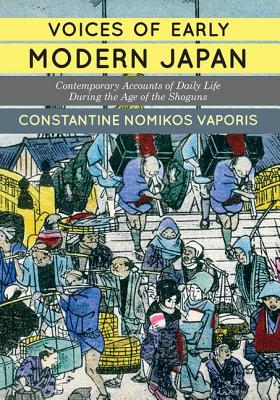
Vaporis, Constantine Nomikos
product information
description
5Winner of the 2013 Franklin R. Buchanan Prize for Curricular Materials awarded by the Association for Asian Studies and the Committee for Teaching About Asia (CTA), Voices of Early Modern Japan offers an accessible and well-balanced view of an extraordinary period in Japanese history, ranging from the unification of the warring states under Tokugawa Ieyasu in the early seventeenth century through the overthrow of the shogunate just prior to the opening of Japan by the West in the mid-nineteenth century. Through a close examination of primary sources from "The Great Peace," this fascinating volume offers fresh insights into the Tokugawa era - its political institutions, rigid class hierarchy, artistic and material culture, religious life, and more. Sources from all levels of Japanese society, from government documents and household records to personal correspondence and diaries, are carefully translated and examined in light of the latest scholarship. Constantine Nomikos Vaporis ably demonstrates how historians use primary documents and what can be uncovered from the words of ordinary people who lived centuries earlier. With robust reader resources and comprehensive coverage, Voices of Early Modern Japan is the perfect addition for students and interested readers seeking a fuller understanding of the Tokugawa period.
member goods
No member items were found under this heading.
Return Policy
All sales are final
Shipping
No special shipping considerations available.
Shipping fees determined at checkout.







